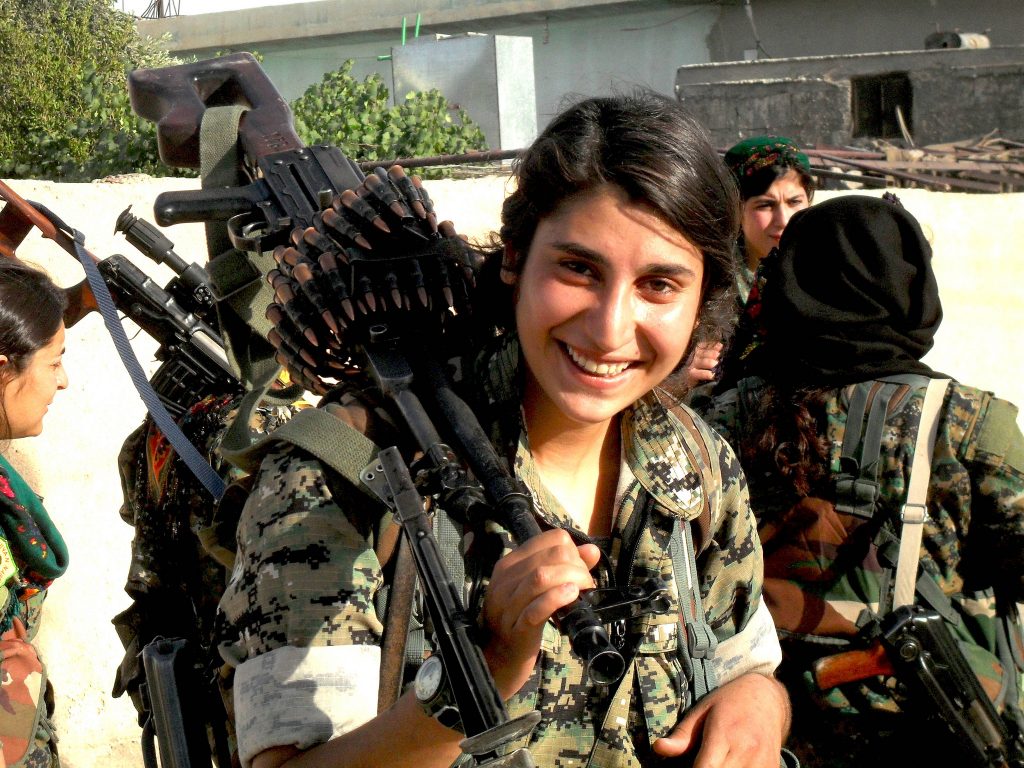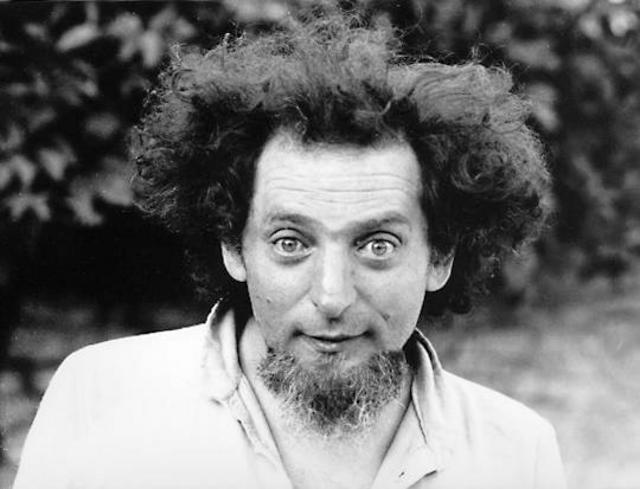In 2014, according to an NBC story about efforts to “chronicle the death of a people,” after ISIS/Daesh* attacked the Yazidi — a religious minority primarily from northern Iraq — roughly 500,000 Yazidi, “an estimated 90 percent of the group’s entire population in Iraq,” were forced to flee their homes after Daesh attacked, while thousands more disappeared.
“They captured our people and took them away. They beheaded women and children,” said a woman in a video about the Yazidi produced by the International Rescue Committee.

The Iraqi poet Dunya Mikhail’s new book of nonfiction, The Beekeeper: Rescuing the Stolen Women of Iraq, tells one aspect of this story: the kidnapping and enslavement of Yazidi women by Daesh. More specifically, The Beekeeper is about one man’s efforts to rescue these women through a network that he set up himself. Before Daesh forced the Yazidi from their home — largely in northern Iraq (i.e. Kurdistan*) — Abdullah Shrem was a beekeeper, hence the book’s title:
I used to have a huge garden in Sinjar where I would tend to the beehives for hours on end, especially on Fridays — discovering the secrets of the bees, their meticulous organization, their harmony with nature. The movements of the queen bee up above, her superior flying abilities compared to the males amazed me, made me profoundly appreciate all the women in my life — especially the queen mother — because her loss would completely disorient the colony. In the end, the females surround the males and expel them from the hive because they’re not good for anything other than pollination. That’s some justice, isn’t it? In our society women work and sacrificed without getting what they deserve, without enjoying the same privileges as men. Women are oppressed even outside the world of Daesh, which has nothing whatsoever to do with rational human life, of course.
The book, which will be released by New Directions at the end of March, is largely made up of Abdullah’s telling of various women’s stories and of first-person versions of those stories, as related to Abdullah and then to Mikhail through phone calls between herself and Abdullah (this framing/narrative device — of stories being passed from one teller to another, and relayed to the reader as uncorrupted and verbatim, presents issues, but more later). And so, for much of its length, the book comprises a series of bracing, difficult primary accounts strung together by comments and asides by Mikhail. Here’s a representative sample:
I ended up spending a year confronting those beasts along with the other young female captives from my village, in a house in the Deir al-Zor area in Syria. They raped us, beat us; they forced us to cook and clean and wash their clothes. During the day, they would take their weapons and go out. At night, they would come back and gather together to take drugs and recite religious verses. When they told us it was time for Quran lessons, this also meant that they were also going to rape us, because they typically did that right after prayers. They would take naked pictures of us with their cell phones, and before starting each “Quran lesson,” they’d exchange pictures of us with each other to see whether there was anyone who wanted to swap with them.
One day, three of them came home so exhausted — and one of them had been wounded in the leg — that they fell asleep without their “Quran lesson.” As we watched them sink into a deep sleep, we all ran out, barefoot, so that we wouldn’t make any noise. We were five girls walking alone at night. After about an hour of walking, we decided to knock on someone’s door. We agreed that only one of us would knock, while the others hide, just to be safe. The youngest girl with us, who was eleven years old, offered to be the one who knocked. She told them, “I’m Iraqi and I escaped from Daesh.” They invited her inside, and when she told them about the four of us still waiting outside, they let us in too. We stayed with that family for two days, meanwhile getting in touch with some Kurds and making a deal to smuggle us out for three thousand dollars each.
The above is only one story, and an excerpt at that. The Beekeeper includes story after story of witnessed mass murder (when Daesh captured Yazidi they would, according to these women’s stories, often separate the younger women and children from the men and older women, and then massacre the latter); of sexual objectification — women report being forced to wear “porno outfits” — and rape and gang rape at the hands of drugged and/or religiously twisted Daesh (they would pray before rape); of the brainwashing of Yazidi children, and turning them into violence-prone Daesh acolytes; of the murder of children; and of the callousness of slavery and treating the female body and its attendants — children, pregnancy — as both commodity and inconvenience. The effect is sickening.
 However, The Beekeeper is also an incredibly hopeful book. That it exists at all — and that it’s being published by a Western book publisher — means that enough women have escaped Daesh for their stories to be told. And Abdullah’s story is remarkable: that a man who was, as far as we’re told, a beekeeper prior to Daesh’s invasion, could go on to form and support (it’s implied that financing the rescues is formidable) a network devoted to saving women from Daesh, almost beggars belief. And then there are the glimmers of light poking through the women’s stories: the kindnesses shown them by non-Daesh Arab residents of the towns the women were held captive in, such as letting the women use their phones, and so effecting the women’s escape; and their remarkable ability to remain brave and maintain hope in the face of so much horror.
However, The Beekeeper is also an incredibly hopeful book. That it exists at all — and that it’s being published by a Western book publisher — means that enough women have escaped Daesh for their stories to be told. And Abdullah’s story is remarkable: that a man who was, as far as we’re told, a beekeeper prior to Daesh’s invasion, could go on to form and support (it’s implied that financing the rescues is formidable) a network devoted to saving women from Daesh, almost beggars belief. And then there are the glimmers of light poking through the women’s stories: the kindnesses shown them by non-Daesh Arab residents of the towns the women were held captive in, such as letting the women use their phones, and so effecting the women’s escape; and their remarkable ability to remain brave and maintain hope in the face of so much horror.
While The Beekeeper is mostly effective and gripping — it made me physically ill at several points, particularly in a section about the murder of one kidnapped woman’s three small children — as a package (i.e., as a book qua book), The Beekeeper has its flaws. For example, about halfway through the book’s tone shifts abruptly, from Abdullah/the Yazidi women’s recollections, to Mikhail’s own memories of growing up in and leaving Iraq for the United States in the 1990s. While the break from the women’s stories isn’t unwelcome, the shift in tone and subject — Mikhail’s role goes from that of a silent medium to central actor — is jarring.
Additionally, that entire conversations are relayed in quotation marks, as if they are verbatim, but which Mikhail seems to have had over the phone, sometimes in the middle of her day, without noting that she’s writing things down, is somewhat puzzling and distracting. How verbatim are these conversations? And if they’re not entirely verbatim, how true are they?

One example from early in the book is when Mikail, who teaches Arabic at Michigan State University, is shopping and she receives a call from Abdullah; she immediately leaves “the orange and the other items in a shopping cart.” Then, without noting whether or how she recorded the conversation, Mikhail relates a series of stories from Abdullah word-for-word, including his story of how he began working to free Yazidi women from Daesh (as quoted above). To be clear, Mikhail does refer to transcribing a record of one conversation with Abdullah, but notes about how his stories were sourced (not to mention checked), and why exactly the details are so very specific, are few and far between. A rigorous AP-style-ruled piece of journalism, with “according to X” bracketing every quote, The Beekeeper is not.
But my craft quibbles don’t matter, not really, as the book has the distinct feel of truth. It has “truthiness,” to borrow from (and admittedly invert) Stephen Colbert’s definition. Though I’m loath to revisit the tired, often late-night-over-substances MFA conversation about what it is that constitutes truth in nonfiction, there’s no reason to believe The Beekeeper isn’t “true.”
So what if some of the finer details aren’t fully accurate? Or maybe they are, and maybe Mikhail’s sourcing is airtight but she simply chose not to pedantically detail it, and maybe I’m splitting hairs for the sake of doing so? For there’s no reason to believe The Beekeeper isn’t true, and that the truths it holds are uncomfortable and upsetting. It demands to be read. The work of The Beekeeper, not to mention its titular character, is important and noble. Please tell others about this incredible book.
Notes
- The title is taken from Dunya Mikhail’s poem, “Diary of a Wave Outside the Sea.”
- Thoughout this essay, I’ll refer to the Islamic State (of Iraq and Syria, or of Iraq and the Levant)—IS / ISIS / ISIL — via its Arabic acronym, “Daesh.”
- Kurdistan — an area that comprises parts of Turkey, Iraq, Iran, and Syria — does not exist as a formal, recognized country, and it may never given the political complications, but for the purposes of this essay it’s useful shorthand. The Yazidi are a religious Kurdish minority, from Kurdistan, who practice a form of monotheism close to Christianity. Some Yazidi do not speak Arabic — the main language used by Daesh, some of whom aren’t culturally Arabic either, coming instead from the West and speaking formal Arabic —and this, plus their culture-specific religious beliefs, sets them apart from their captors as an Other.
- The cover image and the image of women marching are via the Kurdishstruggle flickr photostream.




